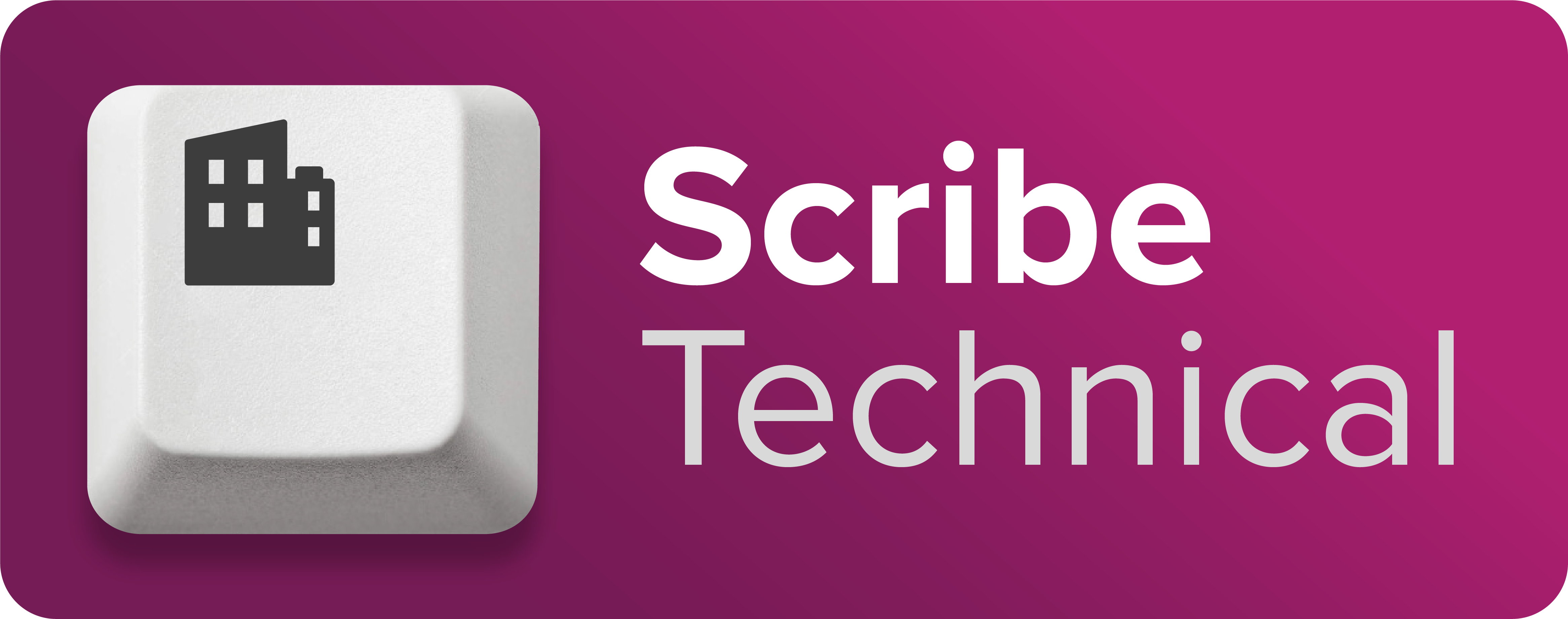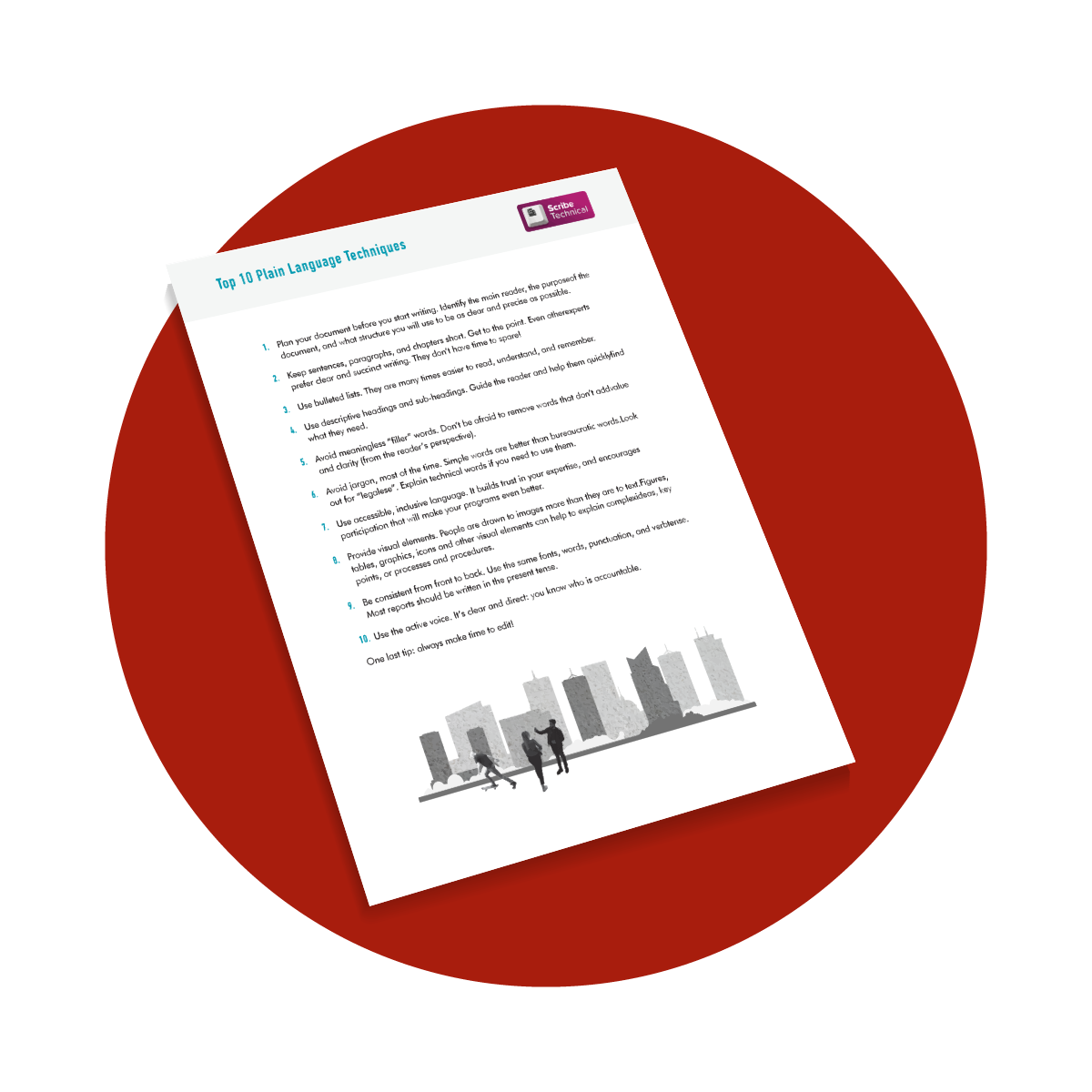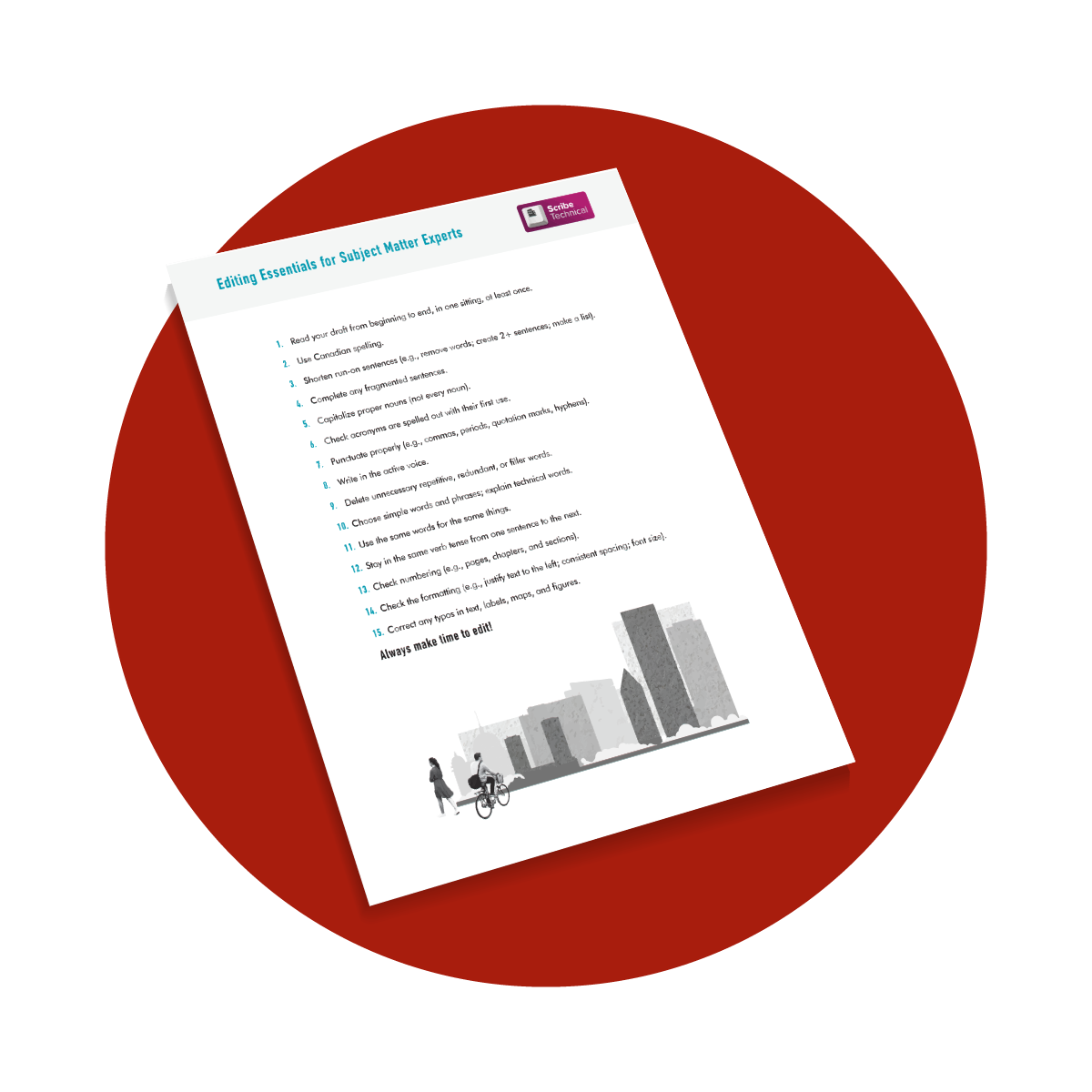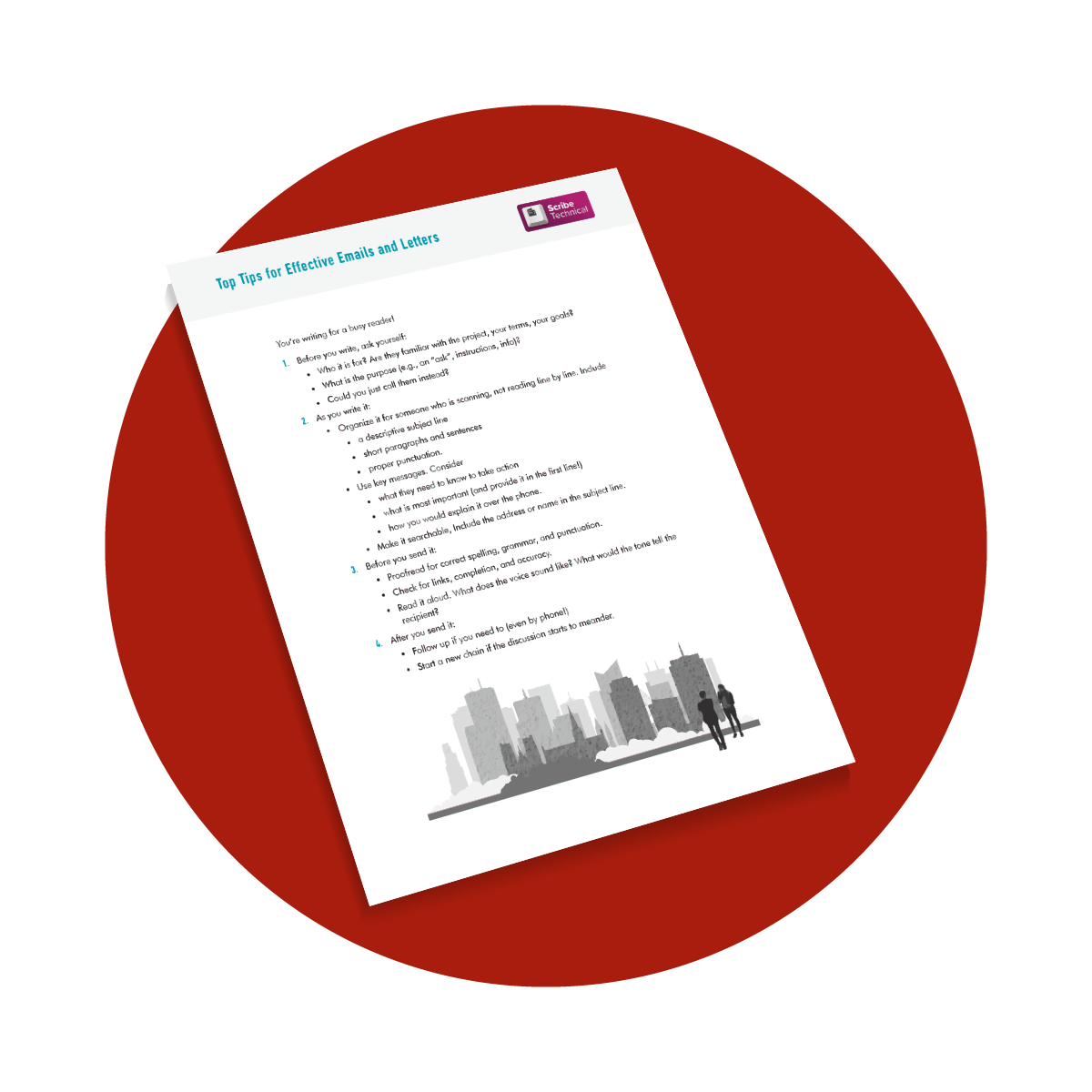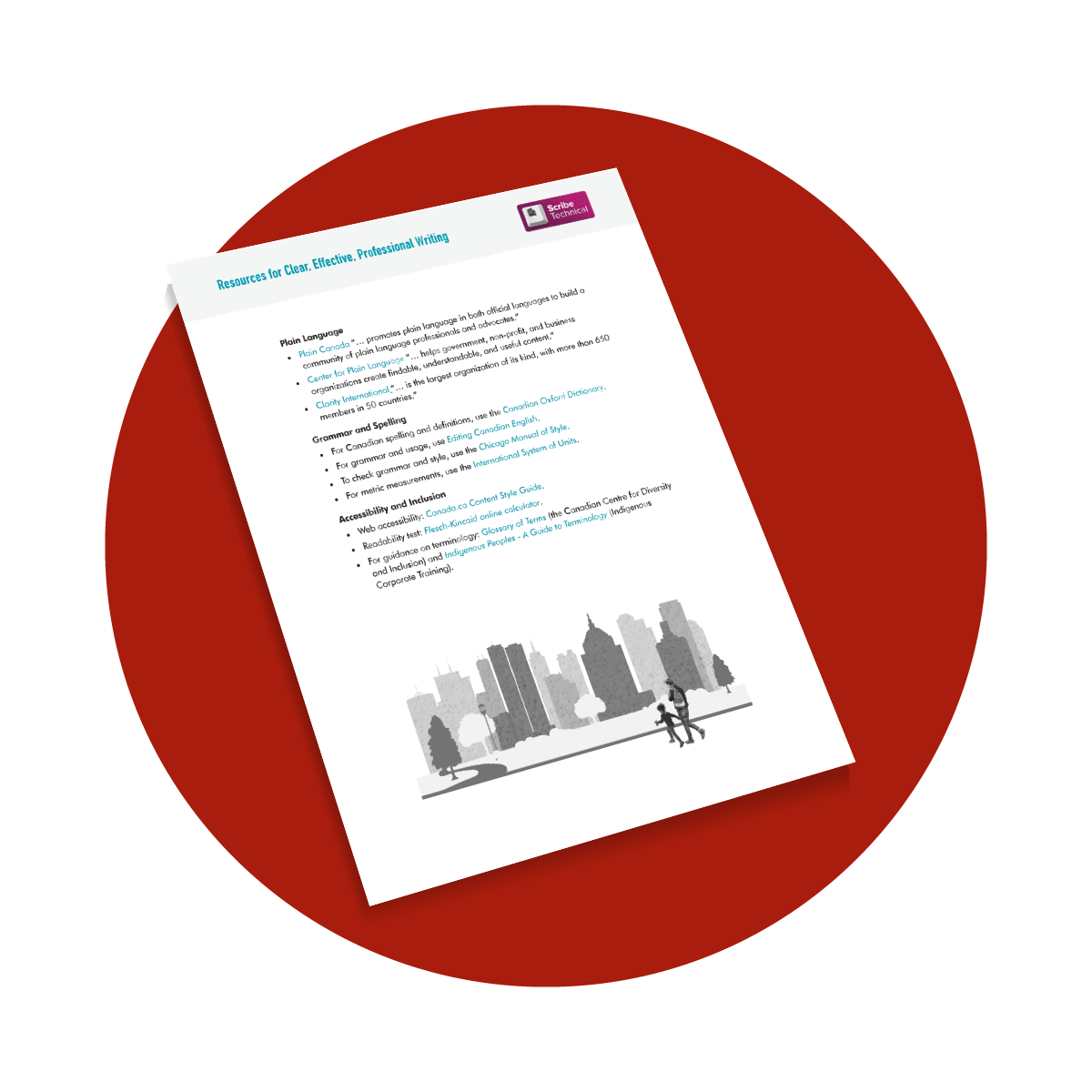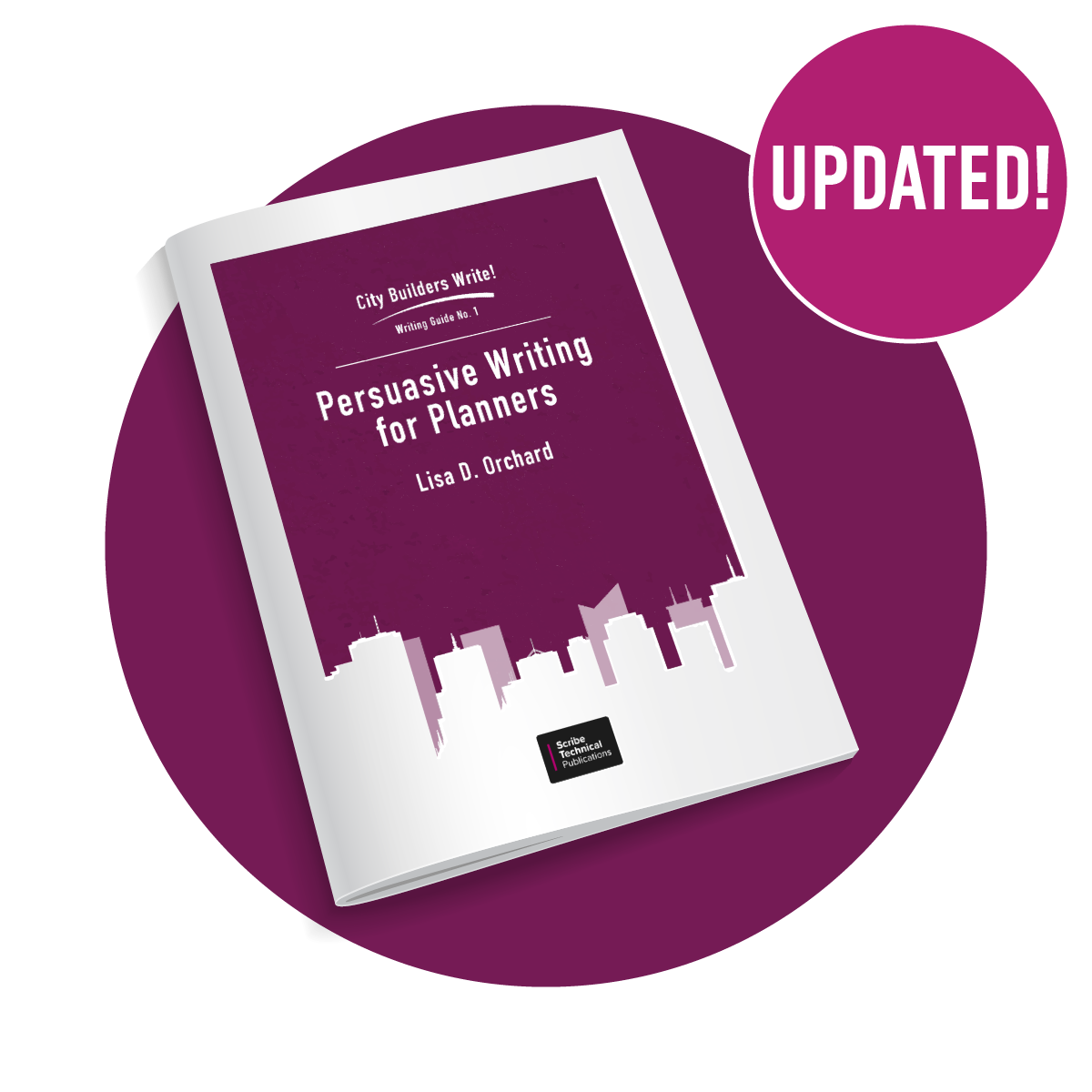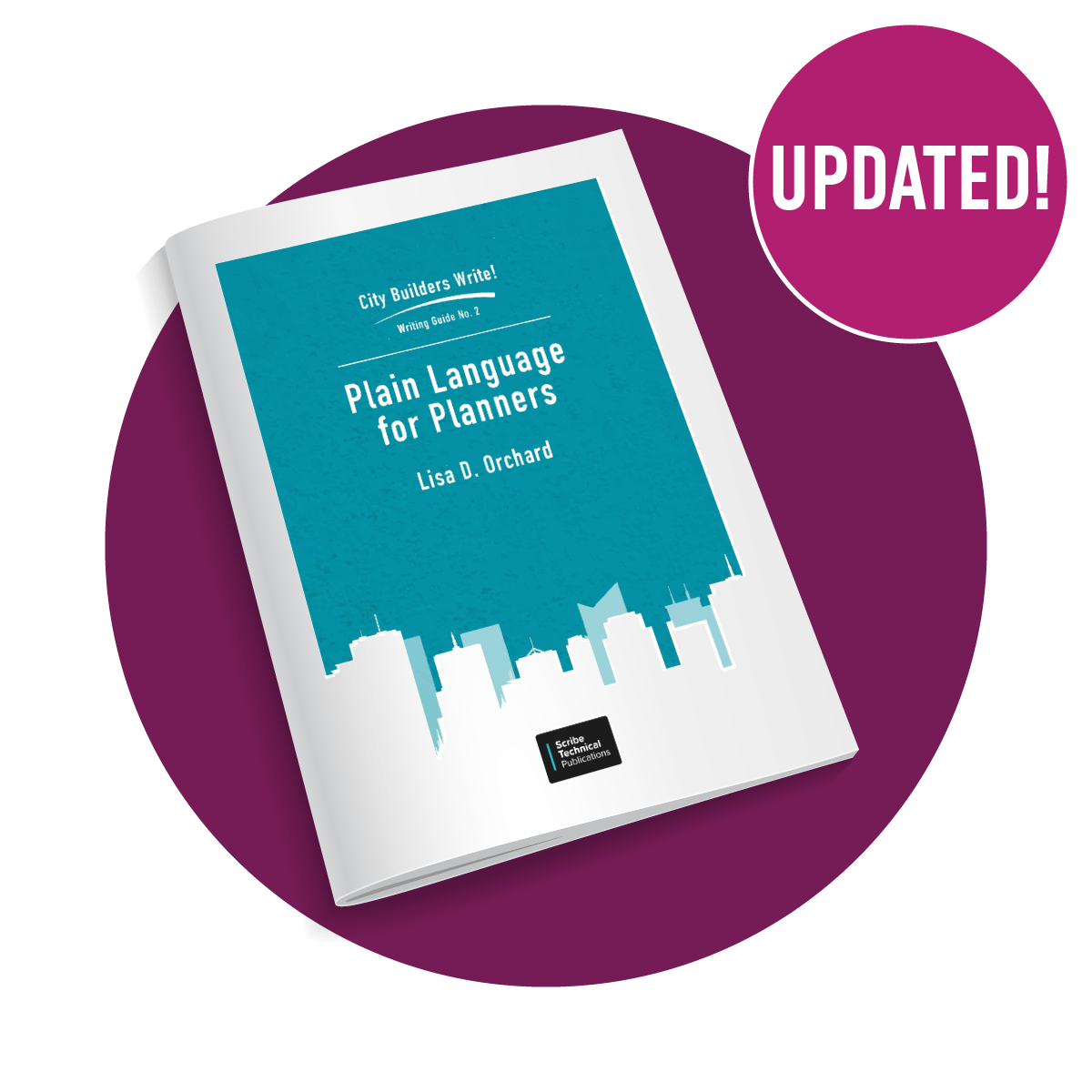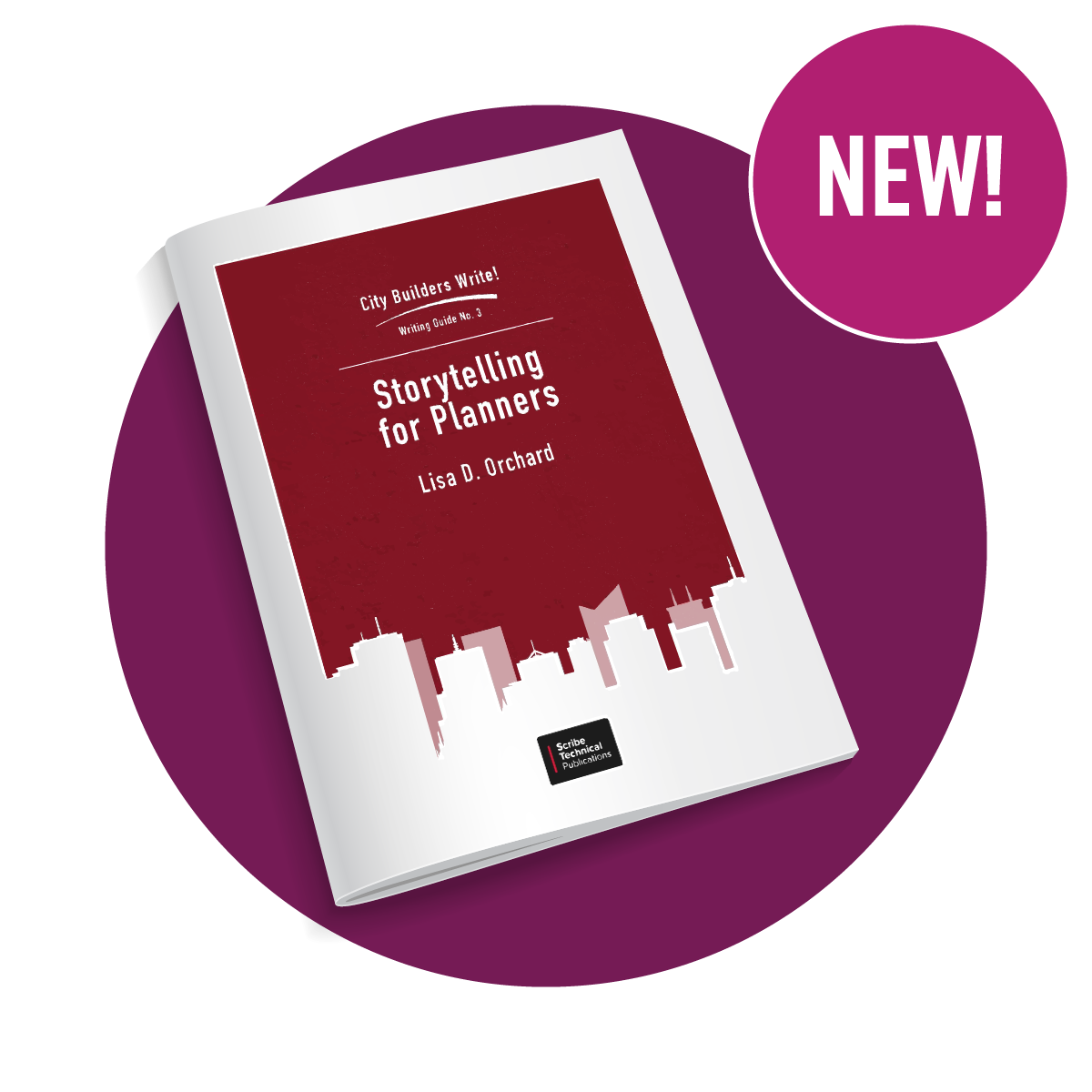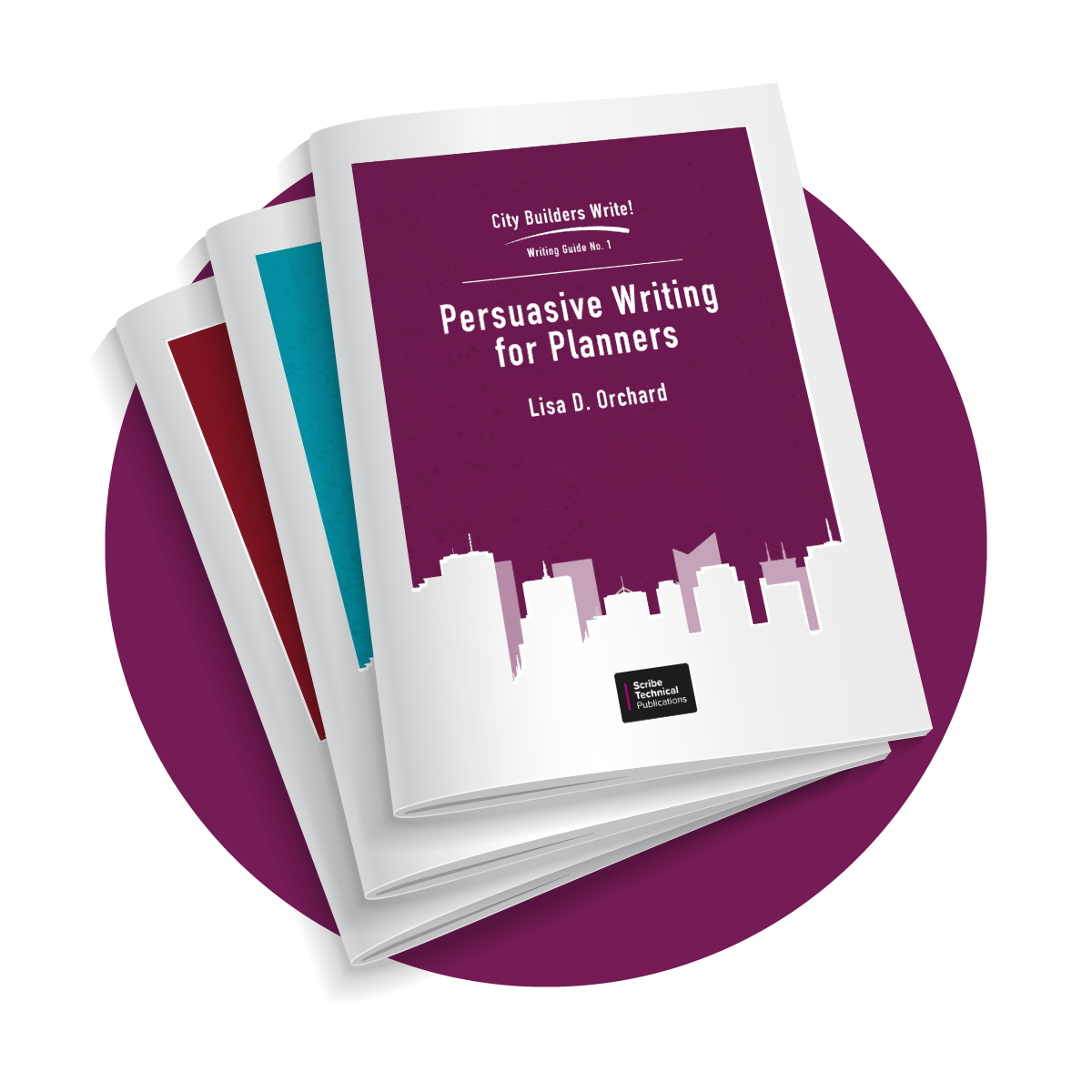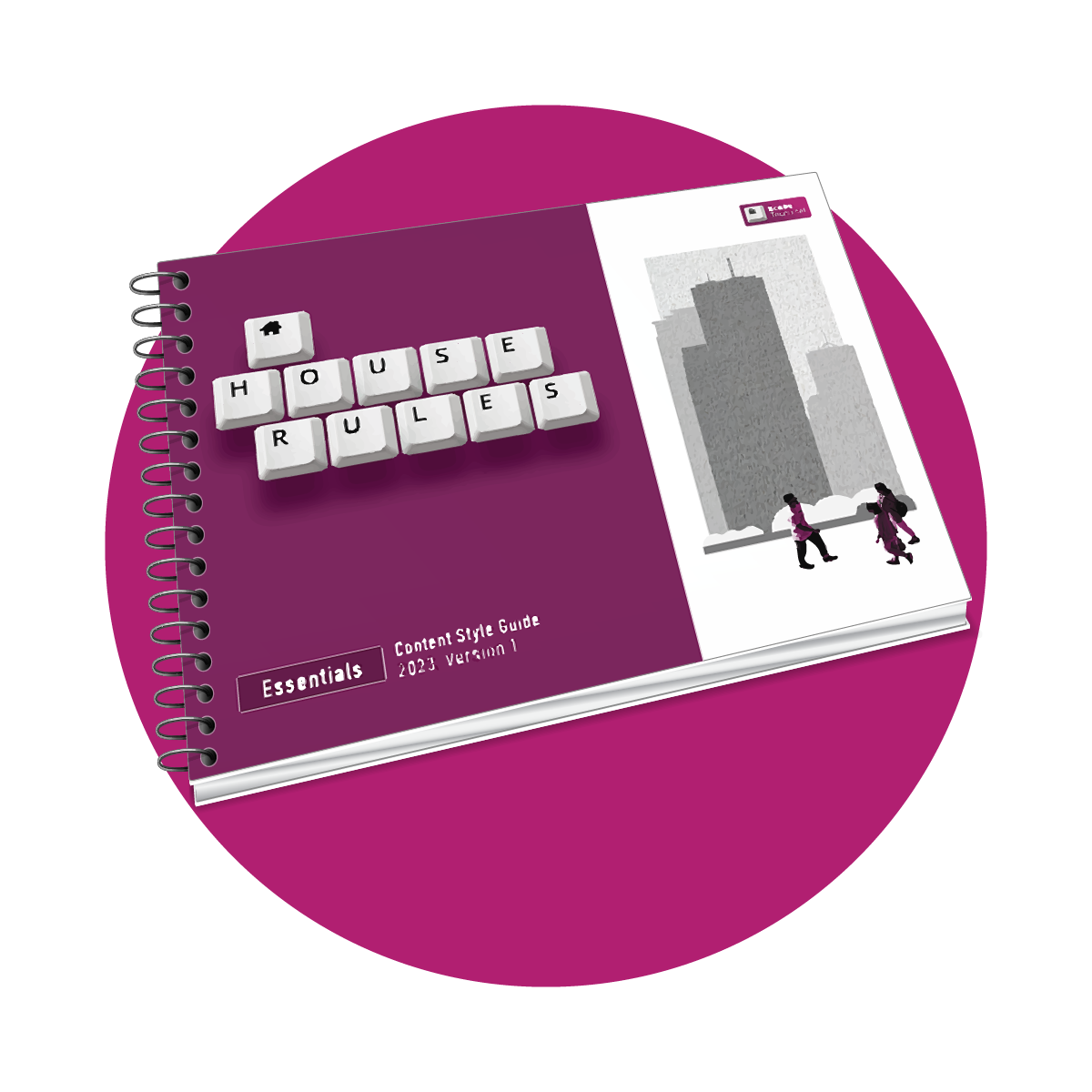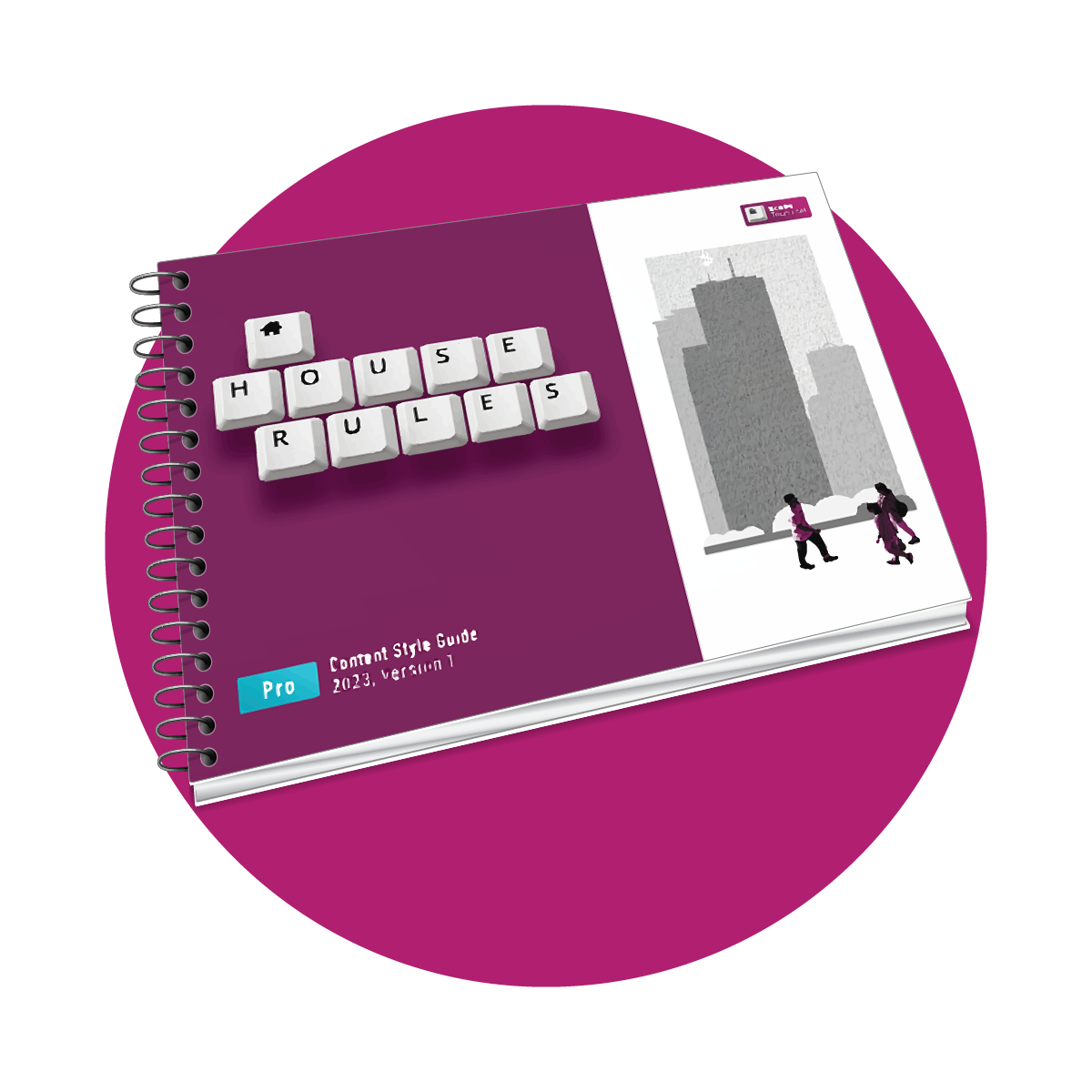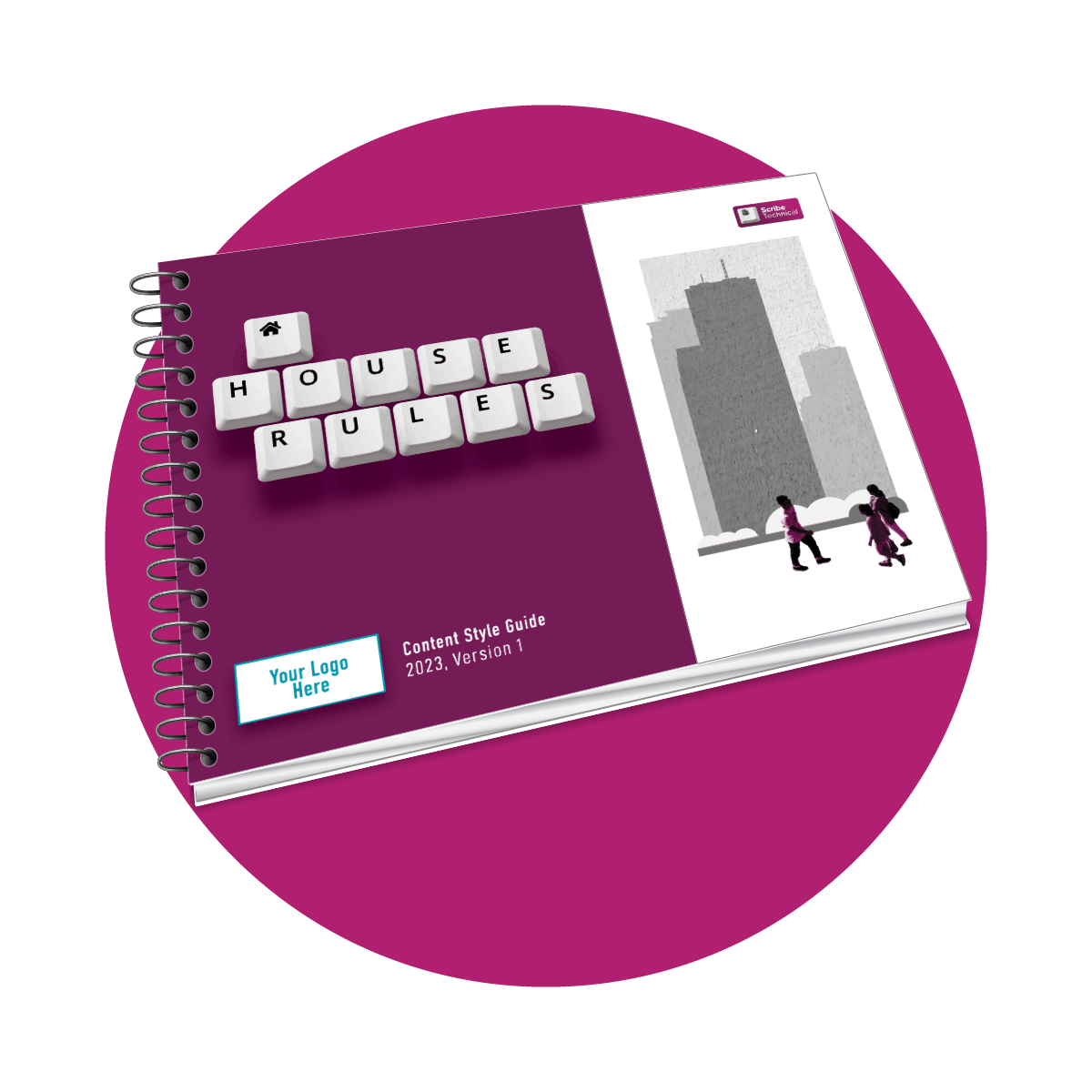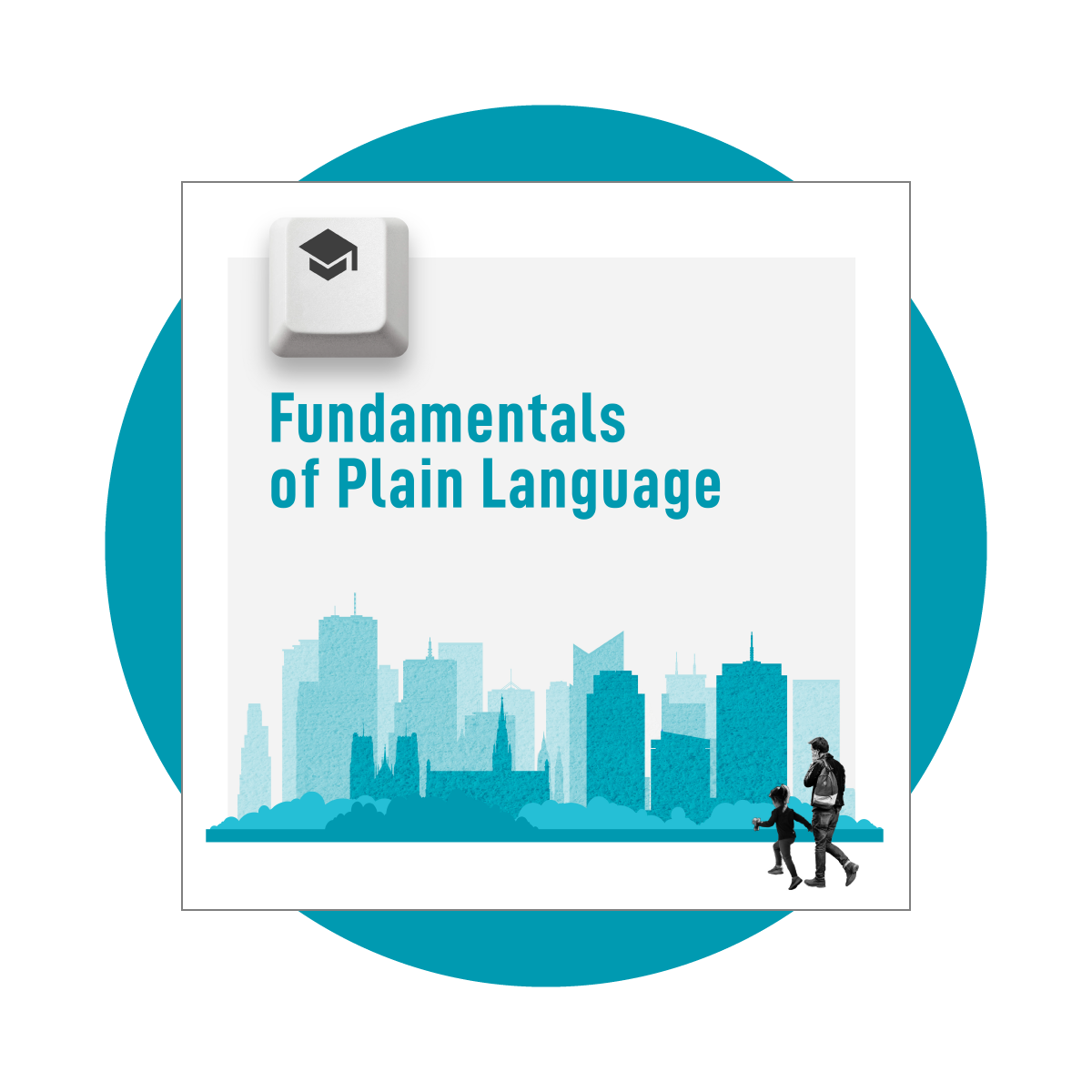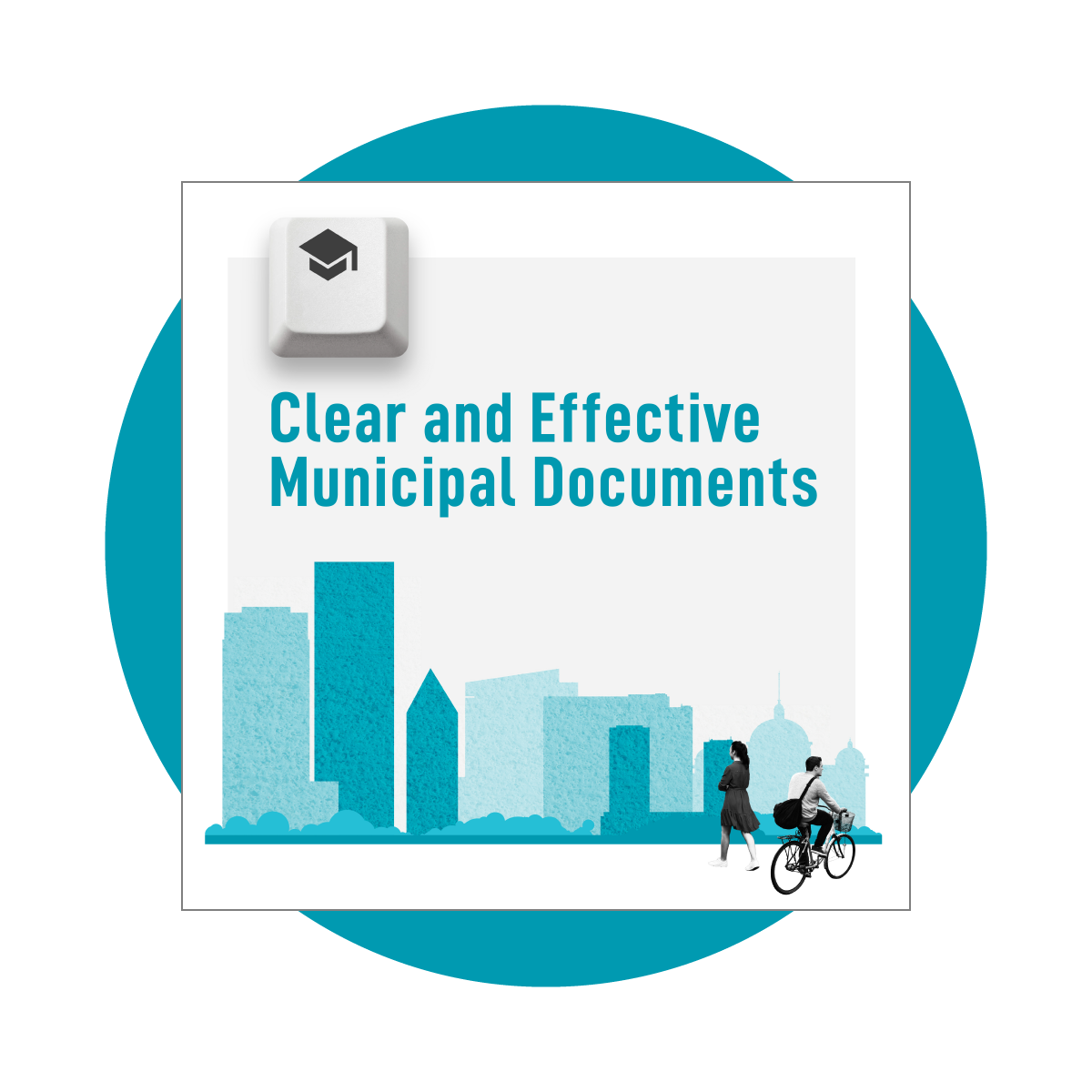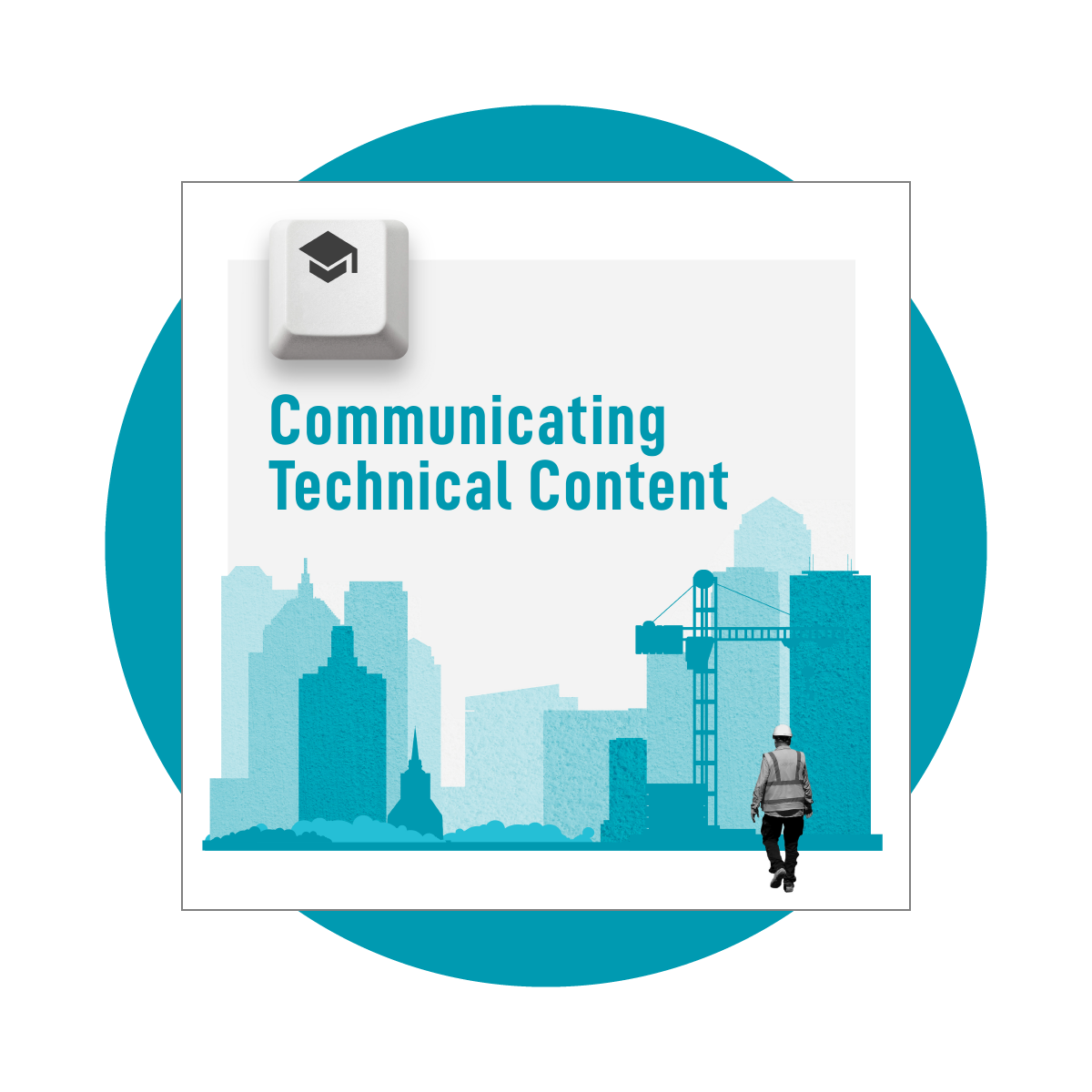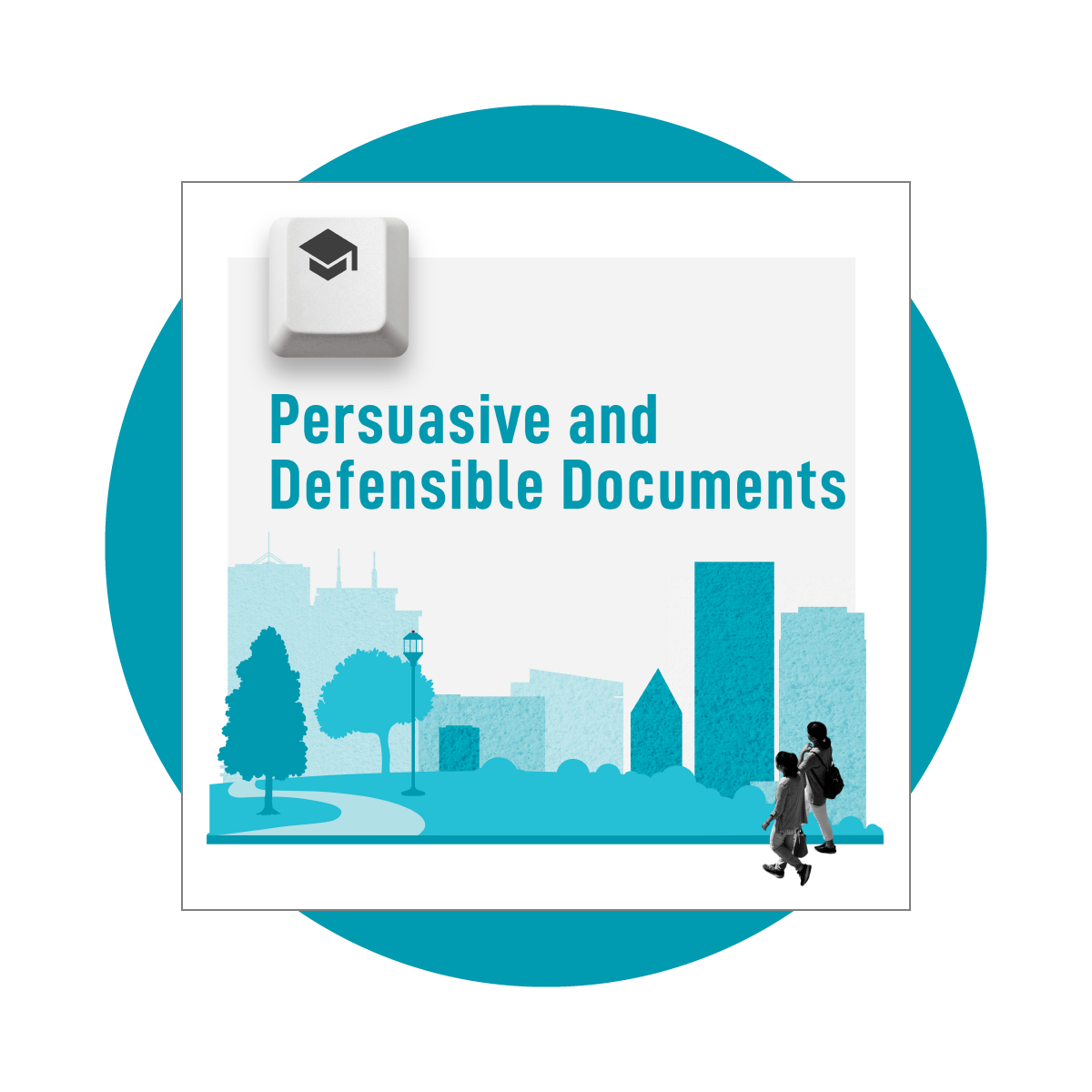Tools and Training
Learn to become a better writer on the job!
Check out my tip sheets, writing guides for professionals, writing tools for organizations and courses.

Tip Sheets (free!)
Need a few tips you can keep on your desktop? Download my PDFs!
Writing Guides for Professionals
Scribe Technical’s writing guides are meant for subject matter experts in government, industry, or non-profits who want to build their writing skills and be a more effective professional. Be heard! These guides are packed with principles and techniques you can apply to all the documents you prepare, and include exercises, practice cases, and resources you can use to continually improve.
Volume 1: City Builders Write!
Get all three or just one.
Writing Tools for Organizations
Scribe Technical’s writing tools are meant for organizations – government agencies, industry firms, and nonprofits – that want to invest in building their in-house capacity for writing excellence and save an enormous amount of time on the revision cycle of producing their documents.
House Rules: Content Style Guide
What’s a Content Style Guide? An essential tool that will save you countless hours spent revising your reports, plans, studies, and other documents!
Every organization needs “house rules”. Like a brand style guide that creates a consistent look and feel for an organization, this is a practical tool that deals with all written communication prepared by staff and management. It helps resolve the most common issues that get in the way of delivering clear, correct, effective, and professional-quality documents.
Our House Rules Content Style Guide will help you apply the standards, rules, and best practices for Canadian spelling, grammar, and usage AND:
- streamline the writing process for both individuals and teams
- reduce time spent on revisions
- clarify preferences and expectations of leadership (so managers spend less time editing!)
- support staff in producing high quality reports the first time and
- improve everyone’s writing ability over time.
It will help every member of your team showcase your organization’s full capabilities and build its reputation for quality with every email, proposal, plan, report, memo, and study that’s written!
Writing Courses for Subject Matter Experts
Our courses fly by in just four weeks! Capped at six participants, we cover the principles and techniques they need to improve their writing on the job, using plenty of examples and exercises to start practicing right away. Synchronous learning generates discussion and shared problem-solving; homework assignments and a customized workbook make it real. Each 75-minute module includes theory, practical application, in-class writing exercises, current examples, and group discussion.
Courses are built on a foundation module:
- Fundamentals of Plain Language
- Clear and Effective Municipal Documents
- Communicating Technical Content
- Persuasive and Defensible Documents
Supplementary modules for the final three weeks include a choice of topics such as:
- effective emails and memos
- reports that get results
- public letters and notices with impact
- copy editing 101
and more!
Course participants complete homework on their own time (up to 2 hours per week), and submit assignments for review, personalized feedback, and group discussion. Materials include a course workbook and tip sheets; webinar recordings; and slide PDFs.
Purpose
Each course provide participants with:
- knowledge and understanding of the theories and best practices to produce top-quality, professional documents,
- in-house resources for the team to improve and speed up the document review and overall production process, and
- enhanced ability to craft effective, polished documents that meet the needs of multiple readers.
Outcomes
By the end of each course, participants will have enhanced their professional knowledge and skills, and:
- understand the value of clear written communication,
- be able to analyze and evaluate their own writing, and apply learned techniques, and
- be able to share evidence and analysis in a way that educates diverse audiences about the value of their work.
